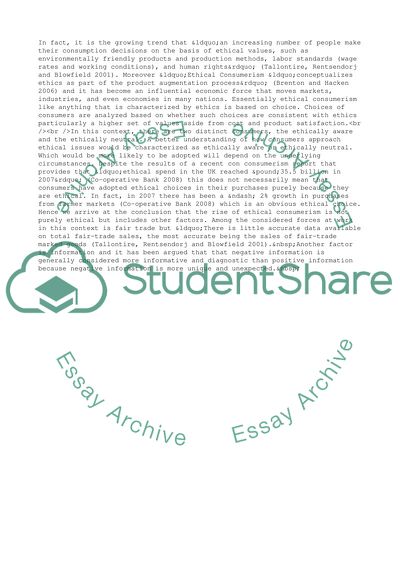Cite this document
(Ethical Consumerism: Ethically Labeled Products, Ethical Retailers Assignment Example | Topics and Well Written Essays - 1500 words, n.d.)
Ethical Consumerism: Ethically Labeled Products, Ethical Retailers Assignment Example | Topics and Well Written Essays - 1500 words. https://studentshare.org/business/1737555-ethical-issues-ethicaly-labelled-products-ethical-retailers
Ethical Consumerism: Ethically Labeled Products, Ethical Retailers Assignment Example | Topics and Well Written Essays - 1500 words. https://studentshare.org/business/1737555-ethical-issues-ethicaly-labelled-products-ethical-retailers
(Ethical Consumerism: Ethically Labeled Products, Ethical Retailers Assignment Example | Topics and Well Written Essays - 1500 Words)
Ethical Consumerism: Ethically Labeled Products, Ethical Retailers Assignment Example | Topics and Well Written Essays - 1500 Words. https://studentshare.org/business/1737555-ethical-issues-ethicaly-labelled-products-ethical-retailers.
Ethical Consumerism: Ethically Labeled Products, Ethical Retailers Assignment Example | Topics and Well Written Essays - 1500 Words. https://studentshare.org/business/1737555-ethical-issues-ethicaly-labelled-products-ethical-retailers.
“Ethical Consumerism: Ethically Labeled Products, Ethical Retailers Assignment Example | Topics and Well Written Essays - 1500 Words”. https://studentshare.org/business/1737555-ethical-issues-ethicaly-labelled-products-ethical-retailers.


